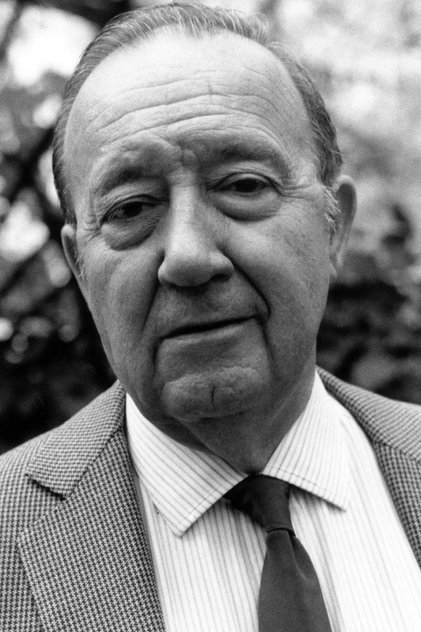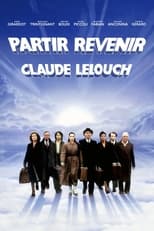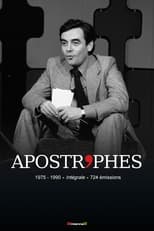

Henri Amouroux
Born: July 1, 1920
Died: August 5, 2007
in Périgueux, Dordogne, France
Died: August 5, 2007
in Périgueux, Dordogne, France
Henri Amouroux (1 July 1920 in Périgueux, Dordogne – 5 August 2007 in Le Mesnil-Mauger) was a French historian and journalist.
Amouroux was born in the French city of Périgueux on 1 July 1920. After studying at the ECJ, he began his career as a journalist during World War II and joined a French Resistance group based in Bordeaux (group Jade-Amicol). He was awarded Croix de guerre 1939-1945.
Amouroux wrote several books on the German occupation of France during his life, especially a ten-volume La Grande Histoire des Français sous l'Occupation (The Full History of the French under the Occupation), published from 1976 to 1993. He later worked for several French newspaper (France Soir) radio (France Inter) and television (TF1) stations. Amouroux was called to testify on behalf of Maurice Papon in 1997, who was on trial in France for his role in the deportation of Jews during the German occupation of France and Vichy collaboration. His testimony was used to counter American historian Robert O. Paxton's version of the Vichy France period during World War II. His testimony was criticized mostly by lawyers representing Jewish Holocaust victims who accused Amouroux of being an apologist for Papon and Vichy France's collaboration with the Nazis. Amouroux denied all charges and MRAP's lawyer, Gérard Boulanger, was convicted for defamation in 1997.
Amouroux was a member of the Institut de France and served as president of the Académie des Sciences Morales et Politiques. He died in 2007 in Normandy at the age of 87, and was buried in the Gironde region of France.
Source: Article "Henri Amouroux" from Wikipedia in English, licensed under CC-BY-SA 3.0.
Amouroux was born in the French city of Périgueux on 1 July 1920. After studying at the ECJ, he began his career as a journalist during World War II and joined a French Resistance group based in Bordeaux (group Jade-Amicol). He was awarded Croix de guerre 1939-1945.
Amouroux wrote several books on the German occupation of France during his life, especially a ten-volume La Grande Histoire des Français sous l'Occupation (The Full History of the French under the Occupation), published from 1976 to 1993. He later worked for several French newspaper (France Soir) radio (France Inter) and television (TF1) stations. Amouroux was called to testify on behalf of Maurice Papon in 1997, who was on trial in France for his role in the deportation of Jews during the German occupation of France and Vichy collaboration. His testimony was used to counter American historian Robert O. Paxton's version of the Vichy France period during World War II. His testimony was criticized mostly by lawyers representing Jewish Holocaust victims who accused Amouroux of being an apologist for Papon and Vichy France's collaboration with the Nazis. Amouroux denied all charges and MRAP's lawyer, Gérard Boulanger, was convicted for defamation in 1997.
Amouroux was a member of the Institut de France and served as president of the Académie des Sciences Morales et Politiques. He died in 2007 in Normandy at the age of 87, and was buried in the Gironde region of France.
Source: Article "Henri Amouroux" from Wikipedia in English, licensed under CC-BY-SA 3.0.
Movies for Henri Amouroux...

Title: Going and Coming Back
Character: Self
Released: March 27, 1985
Type: Movie
Salomé Lerner just finished writing an autobiography. She goes to a TV show called "Apostrophes", hosted by French TV showman Bernard Pivot. Pivot then imagines a film that could be created from her gripping story. A film entirely made of music because after seeing the young pianist Erik Berchot, Salomé believes seeing her long lost brother, who was a musician as well. A brother she had lost along with her parents in 1943. However, the Lerners did in fact escape the gestapo and might have based themselves in Paris...


Title: Apostrophes
Character: Self
Released: January 10, 1975
Type: TV
Apostrophes was a live, weekly, literary, prime-time, talk show on French television created and hosted by Bernard Pivot. It ran for fifteen years (724 episodes) from January 10, 1975, to June 22, 1990, and was one of the most watched shows on French television (around 6 million regular viewers). It was broadcast on Friday nights on the channel France 2 (which was called "Antenne 2" from 1975 to 1992). The hourlong show was devoted to books, authors and literature. The format varied between one-on-one interviews with a single author and open discussions between four or five authors.


Title: Midi Première
Character: Self
Released: January 6, 1975
Type: TV
Midi Première is a French variety show presented by Danièle Gilbert, directed by Jacques Pierre and broadcast from January 6, 1975 until January 1, 1982 on TF1. The program was generally broadcast between 12:15 p.m. and 12:55 p.m., then giving way to the 1:00 p.m. TV news. However, the broadcast schedule could change, depending on the guests, and the setting where the recording of the program was shot. Certain performances by artists who have become cult like the one where Ringo jostles with a demonstrator in interpretation (1977), that of Dalida with the title There is always a song with the soundtrack that does not start, twice, at the right speed (1978), Claude François and his Clodettes, who, in the provinces, are unable to join "the set" in order to interpret his song, the latter being taken by the crowd of delirious fans (summer 1977) . The group Supertramp performed there with the title "Dreamer" on March 8, 1975.
